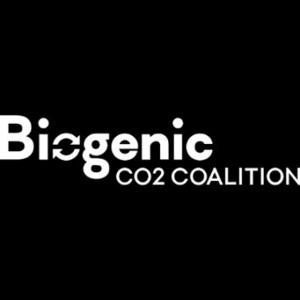Study: Ag crops don't contribute increase atmospheric GHG levels

August 17, 2020
BY Biogenic CO2 Coalition
The Biogenic CO2 Coalition today released a scientific literature review conducted by Seungdo Kim, a leading researcher at Michigan State University, that surveyed peer-reviewed journal articles from all over the world. The review confirms biogenic CO2 emissions from annual agriculture crops do not contribute to elevated greenhouse gas levels in the atmosphere.
Of the 108 articles related to ag-based biogenic emissions and greenhouse gas accounting published since 2010 that were found in the literature review, an overwhelming 104 articles show biogenic CO2 emissions from agriculture crops “are completely balanced by biomass regrowth over a short period of time.” This finding supports the long-held position of the Coalition that the Environmental Protection Agency (EPA) should issue a rulemaking clarifying the de minimis nature of those emissions. The scientific literature review used the Web of Science database, which accesses more than 8,500 academic scientific journals.
Additionally, the analysis by Kim identified multiple accounting methodologies that are applied to biogenic carbon emissions. Regardless of the approach used, the research reveals that the emissions from agriculture crops do not contribute to additional CO2 in the atmosphere. The review was commissioned by the Biogenic CO2 Coalition.
“Dr. Kim’s study further confirms that science from all around the world shows the de minimis nature of emissions from the use of annual agriculture crops. EPA is the only regulatory body in the world to treat agricultural crops and fossil fuels the same and this unfair regulatory barrier has limited the potential of America’s heartland for far too long,” said Thomas Parks, spokesperson for the Biogenic CO2 Coalition. “It’s time the EPA followed sound science and cleared this regulatory barrier to benefit rural America and the U.S. bioeconomy.”
Advertisement
This study aligns with the scientific consensus regarding CO2 emissions from annual agricultural feedstocks. A group of 21 leading scientists recently wrote a letter to the EPA asserting that is it imperative the Agency act swiftly to adopt a rule that recognizes the de minimis character of emissions from annual crops.
By following sound science and promulgating such a rule, EPA has a unique opportunity to spur investments in rural economies, drive the creation of green jobs, and enable American farmers and businesses to fairly compete in the international marketplace for renewable products.
Members of Congress also agree the EPA needs to provide regulatory clarity for annual farm crops. Reps. Rodney Davis, R-IL.; Collin Peterson, D-Minn.; Dave Loebsack, D-Iowa; and Roger Marshall, R-Kan., recently sent a letter to EPA Administrator Andrew Wheeler requesting regulatory clarity for annual farm crops.
Advertisement
Last year, a bipartisan group of 18 Senators also pressed the EPA for swift action on this issue in a letter. A group of five Governors have also urged the agency for action on the same issue.
The Biogenic CO2 Coalition has been calling for the fair, science-based treatment of these crops. The Coalition recently announced a new video and digital ad campaign urging EPA to unleash the U.S. bioeconomy and rural industries by recognizing the de minimis character of carbon emissions from common agricultural crops.
Related Stories
The USDA on April 14 announced the cancellation of its Partnerships for Climate-Smart Commodities program. Select projects that meet certain requirements may continue under a new Advancing Markets for Producers initiative.
The USDA reduced its outlook for 2024-’25 soybean oil use in biofuel production in its latest World Agricultural Supply and Demand Estimates report, released April 10. The outlook for soybean oil pricing was revised up.
BDI-BioEnergy International has signed a contract with Ghent Renewables BV to begin the construction of a pioneering biofuel feedstock refinery plant. Construction is underway and the facility is expected to be operational by the end of 2025.
Gevo subsidiary announces agreement with Minnesota Soybean Processors to track and verify sustainable agriculture attributes
Verity Holdings LLC, a subsidiary of Gevo Inc., has partnered with Minnesota Soybean Processors (MnSP) to implement Verity’s proprietary track and trace software. The collaboration aims to unlock additional value through export premiums.
U.S. operatable biofuels capacity increased slightly in January, with gains for ethanol, according to the U.S. EIA’s Monthly Biofuels Capacity and Feedstock Update, released March 31. Feedstock consumption was down when compared to December.
Upcoming Events










